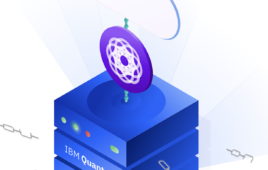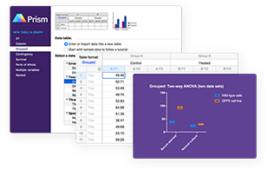The U.S. Department of Energy’s (DOE) Office of Electricity (OE) has launched the $1.85 million Digitizing Utilities Prize Round 2. This competition aims to connect electric utilities with interdisciplinary teams of software developers and data experts to transform digital systems and data analytics for utilities in the energy sector. This round will also award prizes to teams that address cybersecurity threats. Competitors will be incentivized to demonstrate improvements in risk identification, analysis, prediction, or proactive response for enhanced protection of digital energy infrastructures.
 This Round 2 competition comprises two phases — Plan and Progress — to drive accelerated development of the most promising ideas. In Phase 1, competitors will connect with a utility partner, identify a data and/or cybersecurity challenge, and propose a solution to that problem. There will be up to 14 winners in Utility Digitization/Data and Utility Cybersecurity challenges that will each win $75,000.
This Round 2 competition comprises two phases — Plan and Progress — to drive accelerated development of the most promising ideas. In Phase 1, competitors will connect with a utility partner, identify a data and/or cybersecurity challenge, and propose a solution to that problem. There will be up to 14 winners in Utility Digitization/Data and Utility Cybersecurity challenges that will each win $75,000.
In Phase 2, winning teams from Phase 1 will work side-by-side with their selected utility partner on their presented issue for six months to develop and refine a solution that addresses the issues that the utilities are dealing with. At the end of Phase 2, teams will present their progress toward implementing their solution. Up to four winners will be awarded $200,000 each in the Utility Digitization/Data and Utility Cybersecurity challenge tracks.
Recent advances in sensor technologies allow utilities to access fast-streaming data sets, challenging traditional methods of data acquisition, use, and storage. To fully utilize the massive influx of data from these sensors, the electricity sector must undergo a transformation in how it manages data quality, storage, and processing.
With support from the Office of Cybersecurity, Energy Security, and Emergency Response, this round will also address cybersecurity threats and risks with demonstrated improvements in risk identification, analysis, prediction, or proactive response for enhanced protection of digital energy infrastructures.
“Now is the time to challenge conventional ways of thinking,” said Dr. Roshi Nateghi, DOE program manager. “As the industry continuously evolves, the Office of Electricity is committed to accelerating innovative solutions that have the power to strengthen and protect our nation’s grid.”
Round 2 of this prize builds upon Round 1, which launched in October 2022. In that first round, three winning teams of software developers and data scientists were awarded for challenging traditional methods of data acquisition, processing, storage, and analysis while collaborating in real time with industry partners. Their ideas will help transform the energy sector through innovative, actionable insight from grid use. On September 25, each winning team walked away with $100,000 in cash prizes, with one team winning the grand prize of an additional $125,000.
Both Round 1 and Round 2 teams are working toward the goal of helping OE develop a resilient, reliable, secure, and affordable electricity grid.
DOE invites anyone, individually or as a team, to compete to work with utilities to build solutions for the identified digital transformation needs. Solutions developed under this prize will be used to guide the broader utility community with methods to solve data-related challenges.
Submissions close February 2024. Learn more on HeroX, the official prize platform. Interested applicants are encouraged join a webinar about the prize on November 16 at 12 p.m., ET.
The prize is part of the American-Made Challenges program, which incentivizes innovation through prizes, training, teaming, and mentoring by connecting the nation’s entrepreneurs and innovators to America’s National Labs and the private sector. Since the American-Made Challenges prize program launched in 2018 to support U.S. entrepreneurship and innovation in clean energy, DOE has awarded over $400 million in cash prizes and incentives to competitors in more than 60 prizes spanning solar, water, geothermal, buildings, hydrogen, energy storage, transportation, technology transitions, manufacturing, and more.





Tell Us What You Think!